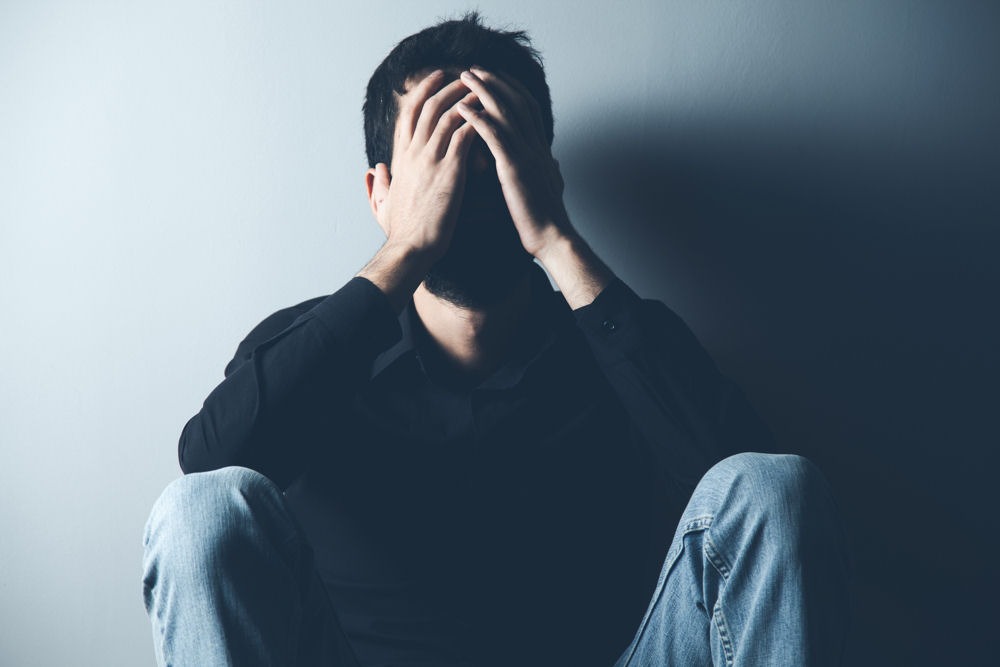Seasonal depression, also known as Seasonal Affective Disorder (SAD), affects millions of people each year. As the seasons change, especially during the fall and winter months, shorter days and less sunlight can trigger feelings of sadness, fatigue, and hopelessness.
If you’ve been feeling low and suspect that the seasonal change might be taking a toll on your mental health, you’re not alone. This quiz can help you better understand seasonal depression, gauge your symptoms, and help you develop a plan that includes helpful resources and strategies for coping.
What is Seasonal Depression?
Seasonal depression is a type of depressive disorder that occurs at specific times of the year, most commonly in the late fall and winter. It is linked to changes in light exposure, weather patterns, and other environmental factors that can affect mood and energy levels. SAD is not just “winter blues” that can be written off and ignored. It’s a recognized mental health condition that can impact daily life, relationships, and overall well-being.
Key symptoms of seasonal depression include:
- Persistent feelings of sadness or low mood.
- Low energy or fatigue, even after sleeping.
- Changes in appetite, often craving carbs or comfort foods.
- Loss of interest in activities you usually enjoy.
- Difficulty concentrating or feeling unmotivated.
- Oversleeping or struggling to wake up in the morning.
If you’re experiencing these symptoms, the first step is acknowledging them and seeking to understand if they might be tied to seasonal changes.
Common Signs and Symptoms of Seasonal Affective Disorder (SAD)
Seasonal depression doesn’t look the same for everyone. Some of the most common signs and symptoms:
- Emotional symptoms: Anxiety, irritability, or feelings of hopelessness.
- Behavioral changes: Social withdrawal, avoiding activities, or isolating yourself.
- Physical symptoms: Low energy, changes in sleep patterns, or unexplained aches and pains.
- Cognitive challenges: Difficulty concentrating, forgetfulness, or lack of focus.
If these symptoms appear in a predictable pattern each year, they might point to SAD rather than a temporary form of depression.
How Seasonal Depression Differs from Other Types of Depression
One distinguishing feature of seasonal depression is its timing. Unlike other forms of depression, SAD typically follows a recurring, seasonal pattern. Symptoms often improve as spring arrives, with increased sunlight and longer days helping to alleviate symptoms of the condition.
SAD is also more likely to affect individuals who live in regions with long, dark winters or those who already have a history of depression or mood disorders.
Take Our Seasonal Depression Quiz

Wondering if you might be experiencing seasonal depression? Take this quick quiz to evaluate your symptoms.
Instructions: Answer the following questions honestly based on how you’ve felt over the past few weeks.
Seasonal Depression Quiz
"*" indicates required fields
How to Interpret Your Quiz Results
If you answered mostly “A” responses, you may be experiencing significant symptoms of seasonal depression. It’s important to seek professional support to address your mental health needs.
If you answered mostly “B” responses, you might have mild symptoms of SAD. Proactive steps like lifestyle changes, light therapy, and staying connected to loved ones may help you manage these feelings.
If you answered mostly “C” responses, you likely aren’t experiencing seasonal depression. However, it’s always helpful to stay mindful of your mental health and take preventive measures as needed.
Remember, no online quiz can replace a proper evaluation from a mental health professional. If your symptoms are affecting your daily life, consider scheduling a consultation with a licensed therapist or psychiatrist.
Coping Strategies for Managing Seasonal Depression
If you suspect you’re dealing with SAD, here are some evidence-based strategies that may help:
- Light therapy: Use a light therapy box to simulate sunlight and help regulate your mood.
- Exercise regularly: Physical activity can boost your energy levels and release feel-good endorphins.
- Spend time with others: Isolation can contribute to feelings of depression, and not addressing initial symptoms can lead to an unhealthy cycle.
- Maintain a routine: Consistency in sleep, diet, and daily activities can help to stabilize your mood on a regular basis.
- Spend time outdoors: Even on cloudy days, exposure to natural light can positively impact your mental health.
- Seek professional help: Professional therapy (and occasionally medication) can be highly effective in helping to manage SAD.
When to Seek Professional Help for SAD
It’s normal to feel down occasionally, but if your symptoms are persistent or worsening, professional intervention might be necessary. Look out for red flags like:
- Inability to function at work or school
- Persistent thoughts of hopelessness or worthlessness
- Loss of appetite or extreme overeating
- Thoughts of self-harm or suicide
Therapists and psychiatrists can diagnose SAD and recommend treatments like cognitive-behavioral therapy (CBT), antidepressants, or light therapy. Not all solutions may be long-term or sustained beyond the darker seasons. But you may discover that a particular solution speaks to your mental health overall and continue it past the initial onset season of SAD.
Tips for Preventing Seasonal Depression Before it Hits
Preventing SAD requires a proactive approach. Here’s how you can prepare for the longer nights and shorter days:
- Begin light therapy early in the fall, before symptoms emerge. A full-spectrum lightbulb can provide many benefits regarding exposure to natural light.
- Maintain a consistent sleep schedule year-round.
- Practice mindfulness or meditation to manage stress on a daily basis.
- Stay physically active and eat a balanced diet.
- Build a support system of friends, family, or peers who can support your experience.
Resources for Seasonal Depression Support and Treatment
If you’re struggling with seasonal depression, here are some valuable resources:
- National Institute of Mental Health (NIMH): Information and research on mental health conditions.
- Psychology Today: Search for therapists specializing in seasonal depression near you.
- Crisis Text Line: Text HOME to 741741 for immediate support.
- Mental Health America: Tools and resources for managing mental health challenges.
Living Well Despite Seasonal Affective Disorder
Seasonal depression may feel overwhelming. But with the right tools, resources, and support, it’s possible to manage symptoms and lead a fulfilling life through the dark times of the year.
Remember that you’re not alone in this journey. Reaching out for help is a sign of strength, not weakness. If you’re feeling blue, take the time to check in with yourself, explore your feelings, and take the necessary steps to prioritize your mental health.
Taking Action: Steps to Improve Your Mental Health Year-Round
Whether you’re currently experiencing symptoms of SAD or want to prepare for the future, taking consistent care of your mental health is crucial for overall quality of life. Stay connected to others, seek professional help when necessary, and practice self-care to build resilience year-round.
By understanding seasonal depression and taking proactive steps to care for your mental health, you can regain control of your mood in darker times of the year. It’s not a weakness to be affected by the weather or the turning of the seasons. It’s just part of being human.
Receive Support for Mental Health at First Steps Recovery
If you or someone you love is struggling with seasonal depression or other mental health challenges, First Steps Recovery is here to help. Our compassionate team of mental health professionals provides personalized care to address your unique needs.
At First Steps Recovery, we offer a range of treatment options that include therapy and holistic approaches to promote healing and long-term wellness. Whether you need support for seasonal depression, anxiety, or another mental health condition, we’re committed to guiding you toward a brighter future.
Don’t wait to get the help you deserve. Contact First Steps Recovery today to learn more about our services and start your journey to improved mental health.
Dr. Belis Aladag is a board-certified physician in Addiction Medicine and Family Medicine, with a Master of Public Health from Johns Hopkins. She brings more than 15 years of experience in clinical care, medical education, and leadership. Recognized as a “Top Doctor” in Sacramento Magazine and Los Angeles Magazine, Dr. Aladag is dedicated to compassionate, evidence-based care and expanding access to mental health and addiction services.





